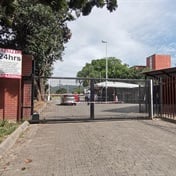
Femicide and gender-based violence are back in the spotlight again following the murder of University of Cape Town student Uyinene Mretyana.
Now several social media accounts promise women a platform to share their stories anonymously, naming and shaming the perpetrators of sexual violence.
“All submissions will be confidential and will remain anonymous,” @AmINext_ZA says in its bio on Twitter. A thread by AmINext_ZA, which was posted on Tuesday, already has more than 30 cases in which people have shared their stories. More people have been named in the thread, including some celebrities.
Submit your ordeals to me and I'll post them anonymously. Enough is enough. They cant hide anymore #AmINextPROTEST #SAShutdown pic.twitter.com/tx0wV6t9UN
— AmINext (@AmINext_ZA) September 3, 2019
Read: Zamani Saul rape claim a ‘lousy attempt to denigrate the premier’s integrity’
Rosie Motene, activist and media proprietor, said that these platforms were an outlet for women to release their pain and trauma.
“Women have been silenced for centuries. We might live in a democratic country, but we do not have equal rights,” she said.
“I strongly advise on counselling and seeking therapy. Speaking out is the first step but healing is essential. As a survivor of physical abuse and rape, I speak from experience. It took me 20 years to speak on my rape, I needed to heal first,” she said.
Thoko Mkhwanazi-Xaluva, deputy chairperson of the Cheryl Zondi Foundation, said that she understood the importance of women having a platform to share their stories.
“It is important for women to be able to share their stories and have a place where they can talk about these incidents. In terms of social media, they [the women] need to be conscious about the repercussions they could face,” Xaluva said.
Xaluva said that many women faced secondary abuse when they tried to open cases with the police against their abusers.
“The system makes it difficult for women to come forward. That’s why women are finding other platforms to tell their stories,” she said.
Mkhwanazi-Xaluva said they encouraged women to open cases against perpetrators.
"B", a respected PR practitioner, said she was failed by the justice system after opening a case against her alleged rapist.
“There’s a lot of resistance from the system. You must work hard to prove everything. Police want everything; you must have fluids. When you have them you still must explain and prove everything,” "B" said.
“Rape is complex. It doesn’t only happen in dark alleys. It is not only committed by strangers. It is committed by people you know, a colleague, uncle and fathers,” 'B" said.
“You deal with men with power, men with influence who are thought to be untouchable. The government is not doing anything about it so it makes sense why women would look for other avenues to try get justice,” she said.
"B" said that women who decided to go public would face a lot of backlash.
“They will be threatened with legal action and a lot of other intimidation tactics such as phones being hacked,” she said.
Social media law expert Emma Sadleir, of Digital Law Co, said that they had been inundated with calls from people whose lives had been ruined by these accounts. She said people had lost their jobs, received death threats and lost major business contracts as a result of these posts.
Sadleir said that they fully appreciated the important platform that social media provided, a cost-free and often effective course of action for victims of any sexual offence.
“We are living in a world of ‘guilty until proven innocent’ and, as such, the reputational consequences on the accused can be tremendous and often irreparable,” she said.
Sadleir said that they learnt from past experiences that it could be difficult to obtain the identities of people behind these accounts.
Zanele Mbuyisa, of Mbuyisa Neale Attorneys, said that the alleged perpetrators could sue those behind the Twitter handle for damages for defamation and it could be argued for crimen injuria (for unlawfully, intentionally and impairing the dignity of another).
“I doubt that whoever is behind the Twitter handle can rely on the public-interest defence or reasonableness,” Mbuyisa said.
For the public-interest defence to succeed, Mbuyisa said, it has to be based on facts and for the reasonableness the publisher must have thought that what they were publishing was reasonably true, because they did some verification to ascertain that the allegations are true.
Mbuyisa advised women to tell their stories in a manner that would not end up with them paying damages to the person who assaulted them.
 | ||||||||||||||||||||||||||
Sthembiso LebusoJournalist | City Press | ||||||||||||||||||||||||||
| ||||||||||||||||||||||||||
| Rise above the clutter | Choose your news | City Press in your inbox | ||||||||||||||||||||||||||
| City Press is an agenda-setting South African news brand that publishes across platforms. Its flagship print edition is distributed on a Sunday. |




 Publications
Publications
 Partners
Partners








